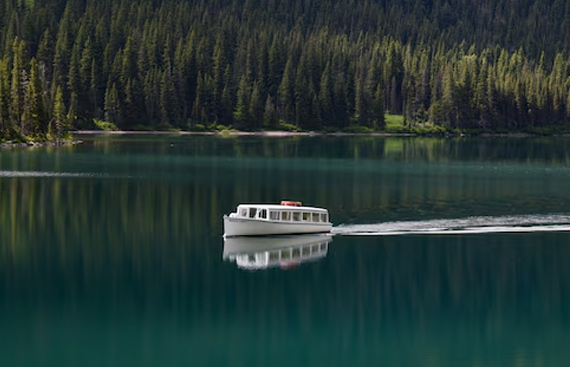How Technology is Transforming the Future of River Cruises

The travel industry has always been quick to adapt to innovation, and river cruises are no exception. Once seen as a traditional and leisurely way to explore inland waterways, river cruising is now becoming a modern, tech-enhanced travel experience. With travelers seeking convenience, personalization, and sustainability, technology is reshaping how river cruises are designed, operated, and enjoyed.
One of the biggest changes lies in how booking and planning are managed. Digital platforms powered by artificial intelligence are making it easier for travelers to find the right cruise based on their interests, budget, and schedule. Algorithms can now analyze user preferences and suggest itineraries with remarkable accuracy, reducing the guesswork and enhancing customer satisfaction. Virtual tours also allow potential passengers to explore cabins, dining areas, and decks before booking, providing transparency and building confidence in their travel decisions.
Onboard technology is another area where the industry is rapidly evolving. River cruise ships are now being equipped with high-speed internet powered by satellite connections, making it easier for passengers to stay connected with family, work, and social networks during their journey. This is a significant improvement from the days when internet access on cruises was slow and unreliable. In today’s world, digital connectivity is not just a luxury but a necessity, especially for younger and tech-savvy travelers.
Automation and smart systems are also enhancing passenger comfort. Many ships now use keyless entry systems, smartphone apps for room controls, and wearable technology that allows passengers to unlock cabins, make purchases, or check schedules without carrying a card or paper. These conveniences not only improve the travel experience but also reduce waste, aligning with the industry’s push toward sustainability.
From an operational standpoint, technology is making cruises more efficient and environmentally responsible. Advanced navigation systems allow vessels to operate with precision, reducing fuel consumption and emissions. Some ships are even incorporating hybrid propulsion systems and energy-efficient designs, helping them comply with stricter environmental regulations. Waste management technology, water treatment systems, and energy monitoring tools further reduce the ecological impact of river cruising. For an industry under scrutiny for its environmental footprint, these innovations are essential for long-term growth.
The onboard experience itself has been transformed by digital integration. Entertainment systems now offer streaming services, interactive maps, and real-time updates about destinations. Personalized apps allow passengers to see daily schedules, book excursions, or order dining preferences directly from their phones. This shift toward digital convenience not only improves efficiency but also reflects the growing expectations of today’s travelers, who are accustomed to seamless tech-driven experiences in every aspect of life.
Safety, too, is benefiting from new technologies. Modern river cruise ships are equipped with advanced monitoring systems, facial recognition tools for secure boarding, and AI-powered surveillance that enhances passenger protection. These measures are particularly important as travel security becomes a top concern worldwide. In addition, health-related technologies, such as air filtration systems and digital health screenings, are being implemented to address concerns that arose during the pandemic era.
For the Indian market and beyond, this blend of tradition and innovation makes river cruising increasingly attractive. India, with its vast river systems and growing middle-class travel segment, has significant potential for expansion in this sector. Technology will play a key role in making river cruising not only accessible but also appealing to a younger demographic that values both cultural exploration and modern conveniences.
Looking ahead, the integration of artificial intelligence, virtual reality, and data-driven personalization is expected to shape the industry even further. Imagine a cruise where an AI assistant recommends local dishes based on your dietary habits, or virtual reality excursions allow you to preview historic sites before stepping ashore. These advancements are not far off, and they will likely become standard features in the next generation of river cruises.
The rise of technology in river cruising highlights an important truth: innovation is not about replacing the essence of travel but enhancing it. At its core, river cruising remains a way to slow down, connect with landscapes, and immerse oneself in culture. Technology simply makes this experience more accessible, efficient, and tailored to individual needs.
As the industry continues to embrace digital transformation, river cruises are poised to attract a new wave of travelers who want the best of both worlds: the serenity of slow travel and the convenience of modern technology. This combination ensures that river cruising will not only remain relevant but will thrive in the decades to come.
